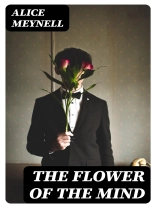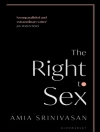In ‘The Flower of the Mind, ‘ Alice Meynell offers a profound exploration of the intersection between nature and the human psyche, artfully weaving together lyrical prose and incisive commentary. The collection consists of essays that reflect Meynell’s mastery of language and her ability to evoke the beauty and complexity of the world. Her literary style is characterized by rich imagery and a contemplative tone, placing her within the broader context of the late Victorian literary revival, which emphasized aestheticism and the significance of individual consciousness. Alice Meynell, a notable figure in the literary landscape of her time, was not only a poet but also a passionate advocate for women’s rights and an influential critic. Her experiences as a mother and her deep appreciation for the natural world greatly informed her writing. Meynell’s work often mirrors her personal struggles and triumphs, revealing the intricate relationship between her life and her literary output. This collection is highly recommended for readers who appreciate the nuanced interplay between nature, thought, and art. Meynell’s essays are not merely observations but invitations to deeper reflection, making ‘The Flower of the Mind’ an essential read for those interested in the intersection of literature and philosophy.
Sobre el autor
Alice Meynell (1847-1922) was an eminent British writer, essayist, critic, and poet whose literary contributions extended to the realms of journalism and suffragist activism. Meynell’s literary craft was defined by its lyrical beauty and reflective depth, often exploring themes such as nature, spirituality, and the subtle intricacies of everyday life. Her collection of poetry ‘The Flower of the Mind’ represents a culmination of thoughtful selection, offering an anthology that reflects her refined taste and the intellectual rigor she brought to the arts. As an editor and critic, Meynell stood at the forefront of the literary scene, interacting with and influencing contemporaries and burgeoning writers of her time. Her literary style merged the elegance of Romanticism with the precision of Victorian sensibility, making her work a distinctive voice that resonated with authenticity and grace. Beyond her written work, Meynell’s enduring impact is seen in her advocacy for women’s rights, bringing a nuanced and influential perspective to the cultural and political dialogues of her era. Her contributions to the literary canon and social commentary remain an essential part of English literature’s landscape, providing insight and inspiration to readers and literary scholars alike.












